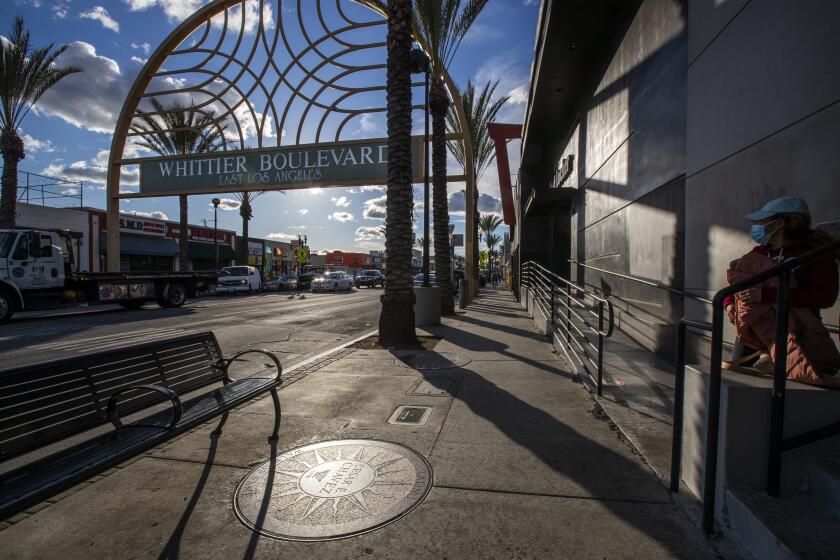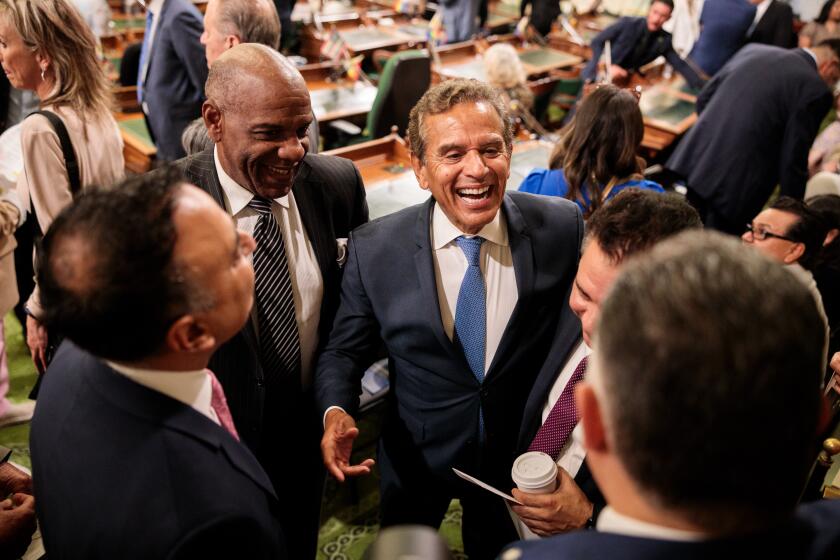Methamphetamine Labs Targeted
A bill to give $10 million to state and local law enforcement task forces to step up the attack on illegal methamphetamine, or “crank,” laboratories has been unanimously approved by the Senate.
“California has become to crank what Colombia is to cocaine,” said Sen. Robert Presley (D-Riverside), the sponsor of the measure (SB 2031), which was sent to the Assembly on a 33-0 vote.
“Methamphetamine abuse is a major problem facing California in the ‘90s and is expected to overtake cocaine as the drug of choice in the years to come,” Presley said.
He said illegal crank laboratories are often set up in predominantly rural areas where detection is less likely than in cities because of reduced population and fewer police personnel.
Presley, a former undersheriff of Riverside County, added that the labs sometimes are found to be booby trapped and defended by heavily armed drug-makers, and can leak dangerous chemicals into underground water supplies. ASSEMBLY Floor Action
Recycled Glass: Passed and sent to the Senate on a 47-19 vote a bill (AB 2622) by Assemblywoman Delaine Eastin (D-Union City) to require new glass food and drink containers made in California, starting in 1993, to contain at least 25% recycled glass.
School Visits: Passed and sent to the Senate on a 45-27 vote a bill (AB 3782) by Assemblyman Curtis Tucker (D-Los Angeles) to require employers to give employees up to four hours off a year to visit their children’s schools. The time would be charged to vacation, personal leave or compensatory time off.
Committee Action
Automobile Purchases: The Ways and Means Committee approved a bill (AB 2604) by Assemblywoman Gwen Moore (D-Los Angeles) to give buyers of new or used cars a 24-hour cooling-off period to cancel the purchase contract--if the vehicle remains in the possession of the dealer. A 12-8 vote sent the bill to the Assembly floor. Bill Introductions
U.S. Flag: AJR 97 by Assemblyman Norm Waters (D-Plymouth) would request that Congress propose a constitutional amendment for ratification by the states to make it unlawful to desecrate the U.S. flag. SENATE Floor Action
Gubernatorial Appointments: Passed and sent to the Assembly on a 26-9 vote a bill (SB 2241) by Sen. Diane Watson (D-Los Angeles) designed to require the governor to appoint more women and minority members to state government boards and commissions.
AIDS: Rejected on a 13-18 vote a bill (SB 1829) by Watson to allow the city and county of San Francisco to implement new pilot programs to fight the spread of AIDS, such as providing intravenous drug users with sterile needles.
Earthquake Insurance: Passed and sent to the Assembly on a 25-7 vote a bill (SB 2608) by Sen. Cecil Greene (D-Los Angeles) to set up a state earthquake insurance corporation to provide minimum coverage for homeowners.
Health Insurance: Passed and sent to the Assembly on a 37-0 vote a bill (SB 2689) by Sen. Alan Robbins (D-Tarzana) to establish a state low-cost basic health insurance pool for workers who do not have it or find it difficult to obtain insurance because of their medical history.
Prison: Passed and sent to the Assembly on a 30-3 vote a bill (SB 2786) by Sen. Robert Presley (D-Riverside) to authorize construction of a new state prison at an undetermined site with $637 million in voter-approved bond funds.
Pay Equity: Passed and sent to the Assembly on a 25-13 vote a bill (SB 2078) by President Pro Tem David A. Roberti (D-Los Angeles) to create a pay equity commission to examine salary differences between male and female state employees who do the same work. The governor has consistently vetoed such legislation in the past. Bill Introductions
U.S. Flag: Like the Assembly resolution, SJR 72 by Sen. Cecil Green (D-Norwalk) would ask Congress to propose a constitutional amendment for ratification by the states to protect the U.S. flag from desecration. Capital Fact
The lieutenant governor serves as the president of the state Senate, but the actual leadership of the upper house is vested in the president pro tem, who is elected to the post by his colleagues.
More to Read
Get the L.A. Times Politics newsletter
Deeply reported insights into legislation, politics and policy from Sacramento, Washington and beyond. In your inbox three times per week.
You may occasionally receive promotional content from the Los Angeles Times.






